|
|
|
|
Late last year South African scientists identified a rapidly spreading new variant of SARS-CoV-2, the virus that causes COVID-19. The announcement of the discovery was greeted with consternation because of fears that SARS-CoV-2 might be mutating. This, however, was not the case and since the South African discovery a number of other variants have been identified in other countries. While they can spread more quickly, none have been shown to be more deadly and they appear to respond to the same treatment. Two of the scientists involved in the South African study, Willem Hanekom and Tulio de Oliveira, explain the complex terrain of virus variants.
Tributes began to pour in from around the world as South Africa prepared to honour one of its legendary jazz heroes, Jonas Gwangwa. A trombonist, composer and political stalwart, Gwangwa was a vastly talented artist who spent his life in service both of South African culture and of the people. Gwen Ansell, who is working on a forthcoming authorised biography on Gwangwa, writes about the extraordinary role he played in the country’s
liberation culture - and on the world’s music stages.
Collapsed buildings are worryingly common in African cities. The default explanation is that this is due to building regulations not being enforced. Godwin Boateng sets out why this only a partial explanation. The underlying and more intractable problem is the inefficient allocation of public resources, which favours the well-off and leaves low-income people - the majority - to fend for themselves.
|
Ina Skosana
Health + Medicine Editor (Africa edition)
|

|
|
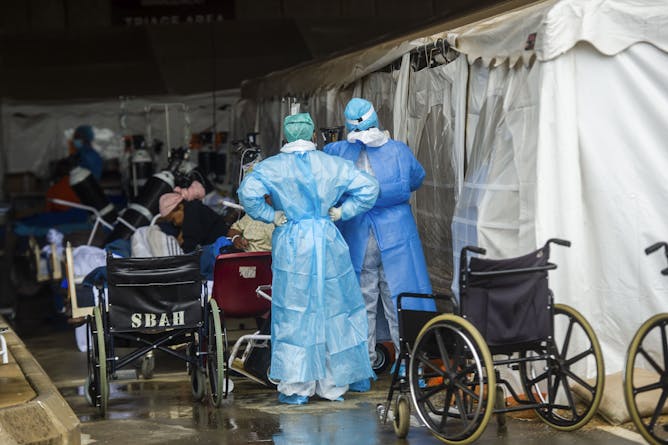
Health care workers and patients in the temporary outside area Steve Biko Academic Hospital created to screen and treat suspected Covid-19 cases in Pretoria.
Alet Pretorius/Gallo Images via Getty Images
Willem Hanekom, University of KwaZulu-Natal; Tulio de Oliveira, University of KwaZulu-Natal
Scientists have observed that 501Y.V2 has quickly become "dominant" among multiple variants that have been circulating in the South African population.
|
|
|

Gwen Ansell, University of Pretoria
The revered trombonist, composer and cultural activist never wished to be 'the state composer' but remained political until the end, in service of the people.
| |

Festival Godwin Boateng, Columbia University
Ghana has a long institutional history that's shaped the practices which create dangerous buildings.
|
|
|
Science + Technology
|

Caleb Kibet, International Centre of Insect Physiology and Ecology
New law has significant implications for researchers in general, and for those involved in the health sector in particular.
| |

Ozayr Patel, The Conversation
Radio galaxies may be the oldest galaxy systems, providing clues to the evolution of galaxies.
|
|
|
Politics
|
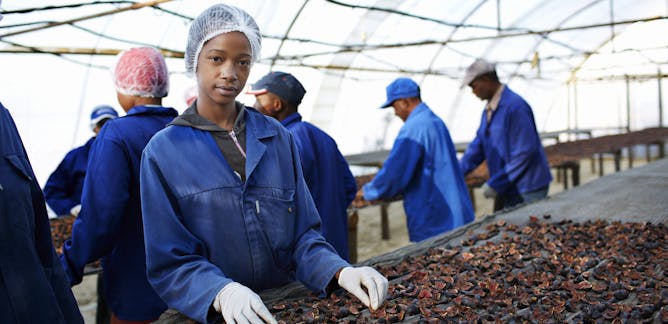
Thomas Daum, University of Hohenheim; David Harris, Bangor University; Kai Mausch, World Agroforestry Centre (ICRAF); Katie LaRue, Grand Valley State University
Young people typically see farming playing some role in their future as they prefer to remain in their rural homes, although few respondents want only to farm.
| |

Keith Gottschalk, University of the Western Cape
Jackson Mthembu's death drives home the seriousness of the COVID-19 pandemic in the country.
|
|
|
From our international editions
|
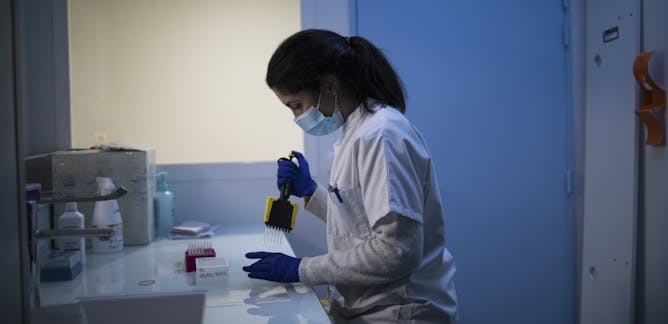
Sarah Otto, University of British Columbia
Multiple COVID-19 variants are circulating around the world and becoming more common. These mutations can alter the ability of the virus to take hold and replicate within our cells.
| |
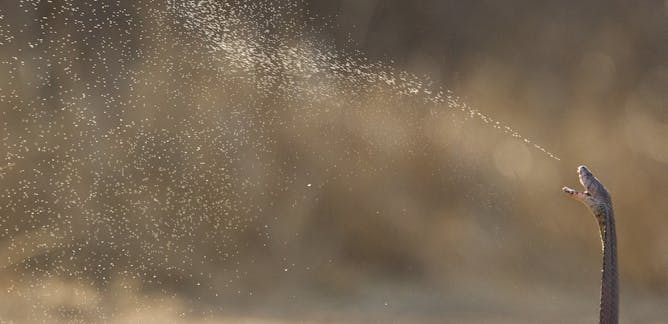
Taline Kazandjian, Liverpool School of Tropical Medicine; Harry Greene, Cornell University; Nicholas Casewell, Liverpool School of Tropical Medicine; Wolfgang Wüster, Bangor University
A toxin unique to spitting cobras means their venom causes more pain than other snakes.
|
|
|
En Français
|

Delphine Lahet, Université de Bordeaux; Stéphanie Prat, Université de Bordeaux
Les périodes de stress financier mondial, comme celle liée à la crise actuelle, entravent l’émission et l’achat de dette libellée en monnaie locale. La Chine ne fait pas (encore) exception à la règle.
| |
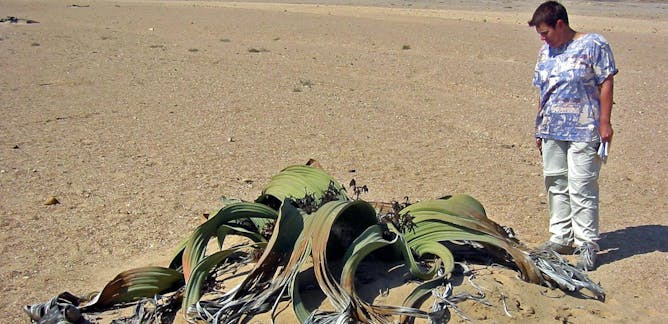
Germinal Rouhan, Muséum national d’histoire naturelle (MNHN); Serge Muller, Muséum national d’histoire naturelle (MNHN)
Ce très petit arbre, curiosité botanique mondiale, est devenu l’un des attraits touristiques des déserts côtiers d’Afrique australe en Namibie et en Angola.
|
|
|
| |
Featured events
|
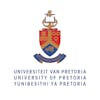
|
Centre for Human Rights, Faculty of Law, University of Pretoria, Pretoria, Gauteng, 0002, South Africa — University of Pretoria
|

|
Centre for Human Rights, Faculty of Law, University of Pretoria, Pretoria, Gauteng, 0002, South Africa — University of Pretoria
|
|
|
|
| |
| |
| |
Would you like to republish any of these articles?
|
|
It’s free to republish, here are the guidelines.
Contact us on africa-republish@theconversation.com in case you need assistance.
|
| |
| |
| |
| |
|
|
|
|
|
|
|